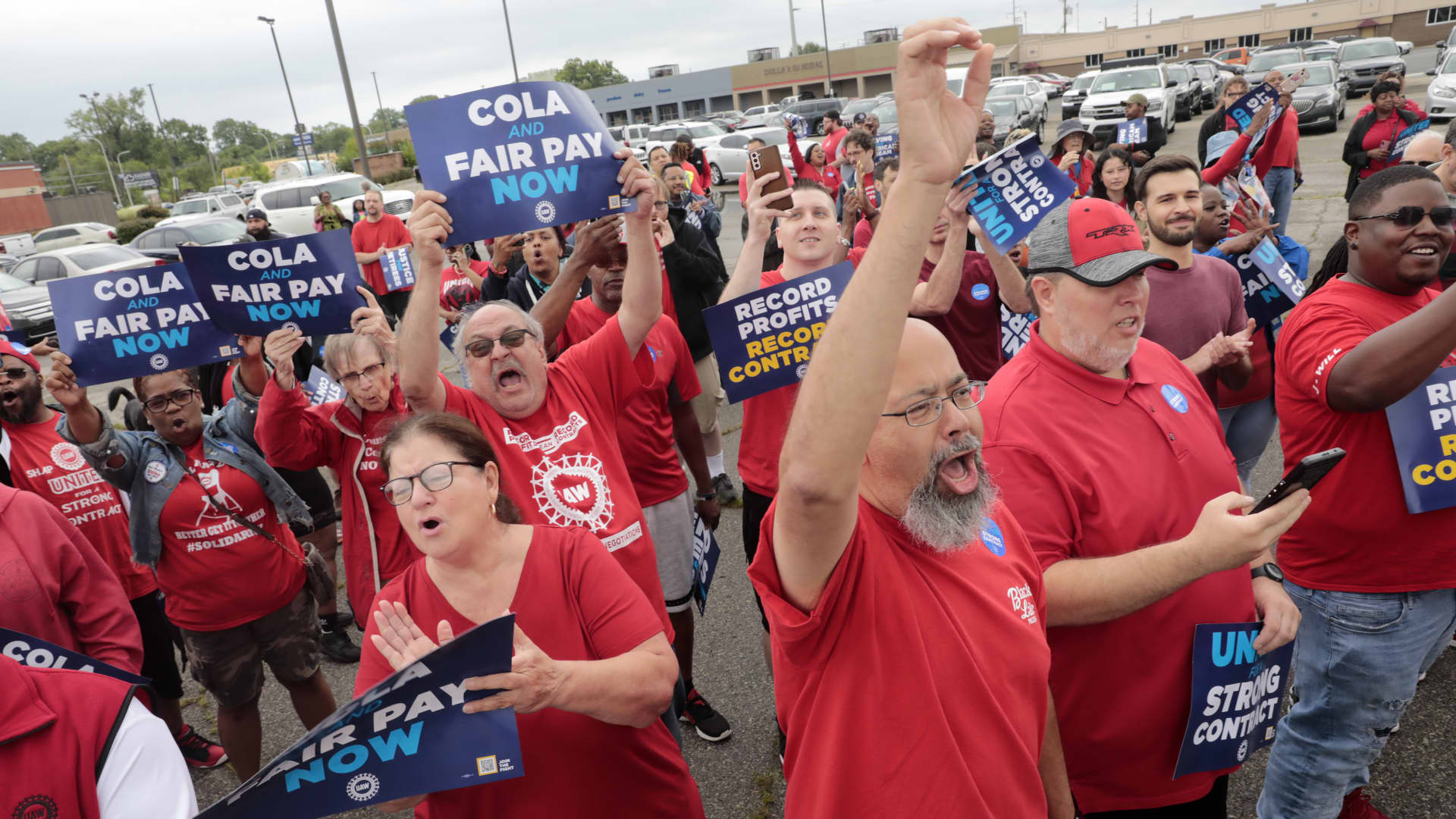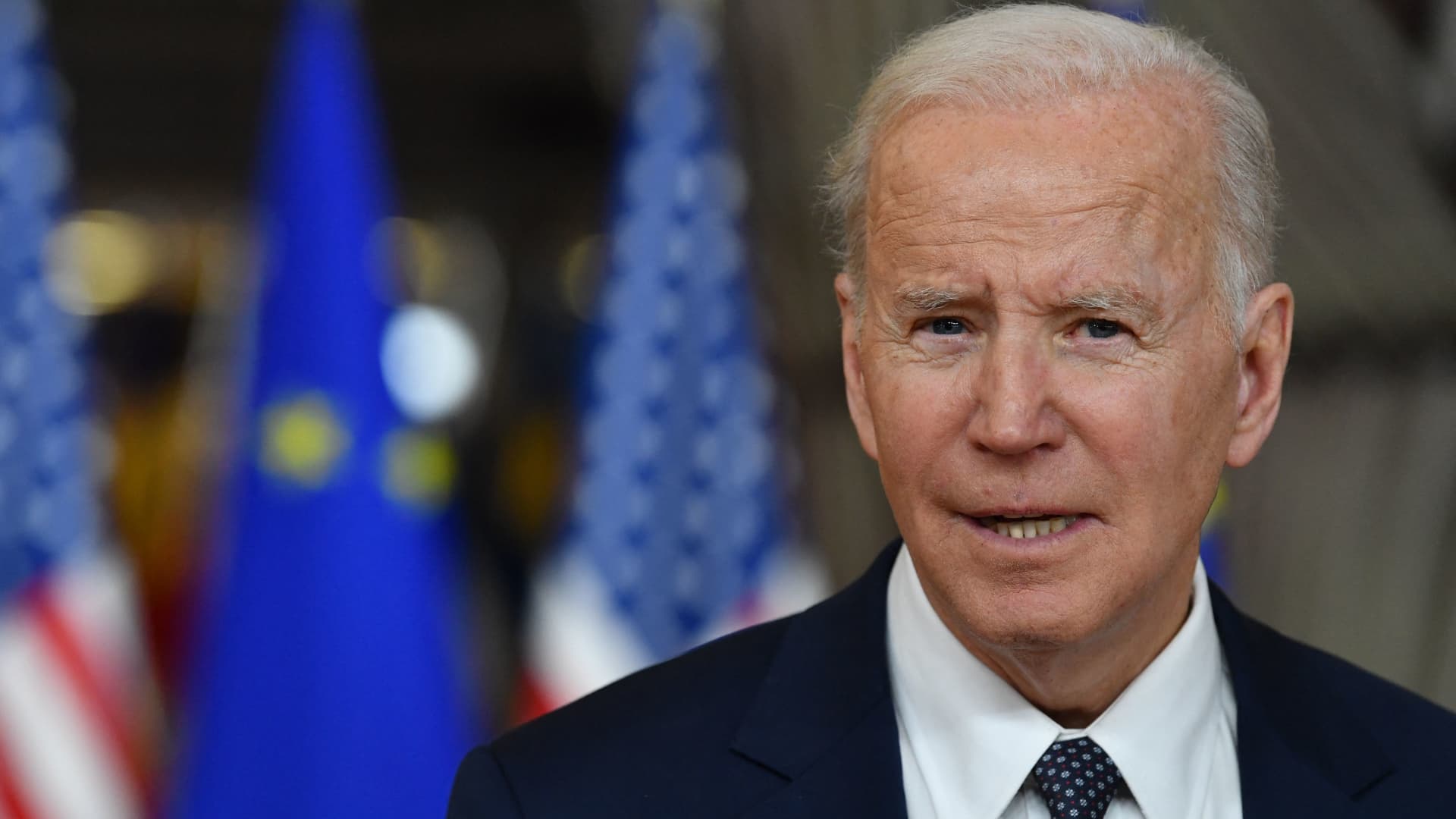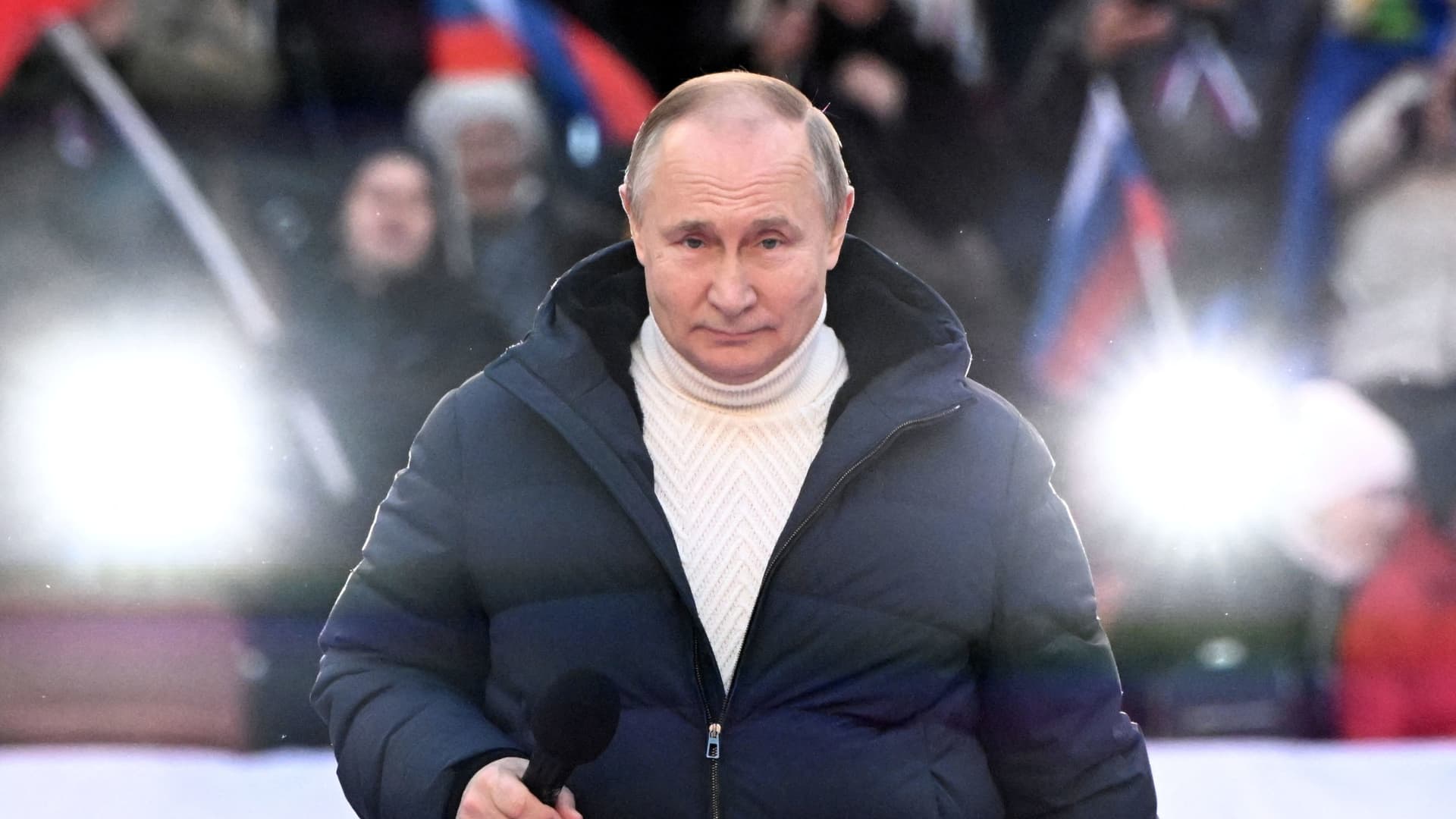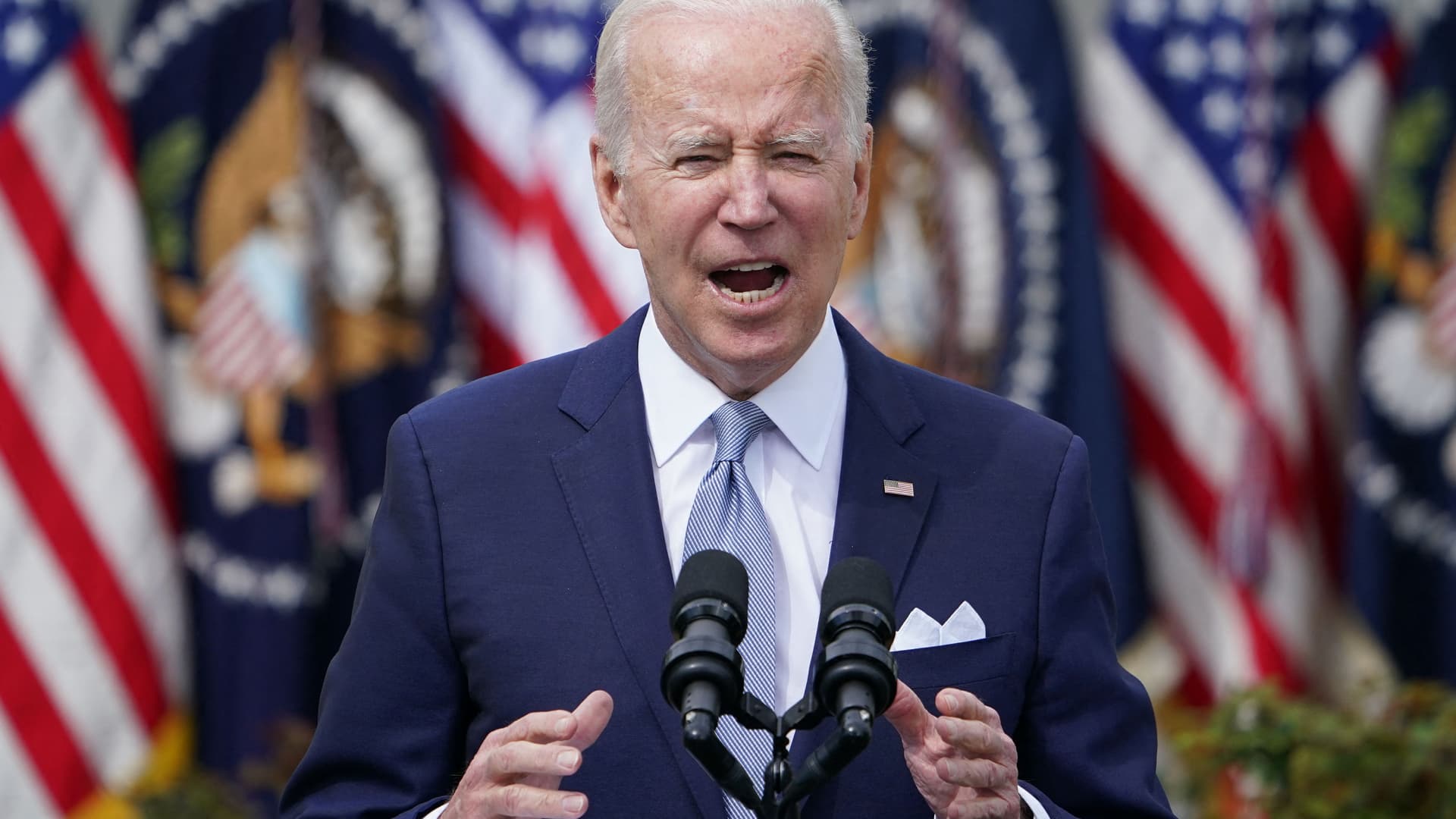Stellantis offers raises, inflation protection measures to UAW as strikes continue
The company outlined its latest deal, which was released Thursday.

Demonstrators during a United Auto Workers (UAW) practice picket outside the Stellantis Mack Assembly Plant in Detroit, Michigan, US, on Wednesday, Aug. 23, 2023.
Jeff Kowalsky | Bloomberg | Getty Images
Stellantis said Saturday that its most recent proposal to the United Auto Workers includes raises of nearly 21% over the course of the contract, including an immediate 10% pay increase, and the end of wage tiers for some workers, the latest development in a historic showdown between the big three Detroit automakers and the union.
The Jeep maker's proposal, which is in line with proposals from Ford and General Motors, would also continue to offer profit sharing to workers, according to new details on the offer released by the company Saturday.
"The teams have been very, very careful to listen, very careful for us to come up with best offers that we can do that also protect … the company," COO Mark Stewart said on a Saturday call with reporters.
The standoff between the UAW and major automakers Stellantis, Ford and General Motors reached a fever pitch Friday, with the union starting work stoppages after an agreement wasn't met by a Thursday night deadline. The so-called stand-up strike started with walkouts at three key plants — one for each automaker — with the possibility that the UAW can call on more of its members to join the strike if needed.
The union has been seeking 40% hourly pay increases, a reduced 32-hour workweek, a move back to traditional pensions, the elimination of compensation tiers and a restoration of cost-of-living adjustments, among other items. The UAW didn't immediately respond to a request for comment about the proposal.
Meanwhile, Ford and GM resumed negotiations Saturday after no talks occurred between the union any of the automakers the previous day. Stellantis said it planned to pick up talks again Monday.
UAW President Shawn Fain said earlier this week that Stellantis had previously offered a 17.5% increase.
Under the new proposal, starting pay for supplemental employees would increase by $4.22, or nearly 27%, to $20 an hour.
The company also said it would cut the timeline for ascending the hourly wage scale in half to four years, meaning all full-time hourly employees would reach the top before the contract expires. Under the offer, the wage-tier system would be eliminated entirely for its Mopar division, which is known for service, parts and customer interfacing.
Stellantis also offered an inflation protection measure within compensation. The company said it has committed more than $1 billion for improvements in the pension and retirement savings plans for current employees and retirees.
Stellantis leadership also pushed back against the union's descriptions of the automaker's plans to close or sell 18 facilities. The company has said it aims to run parts distribution centers more efficiently and continue shifting resources toward electric vehicles. Jobs in these plants would be persevered, the company said.
The automaker also stressed its commitment to bargaining and reaching an agreement that is financially feasible, echoing concerns raised by Ford and GM leadership. Ford CEO Jim Farley said in a CNBC interview Friday that the UAW demands would force the company to "choose bankruptcy over supporting our workers." Stellantis' leadership noted that the company needs to stay competitive with automakers that don't have unionized employees.
"It's not about warfare, it's about win-win," Stewart said. "It's about us finding something that is great for our folks today, able to keep a future for tomorrow … for our company to be able to continue the investment path we have for electrification, and for our U.S. operations to be strong so we can compete against the transplants and we can compete against the new entrants."
President Joe Biden said Friday that the companies should improve their current offers to ensure a strong contract is agreed on amid a period of record profits.
— CNBC's Michael Wayland contributed to this report.

 Kass
Kass 




























.jpg)

